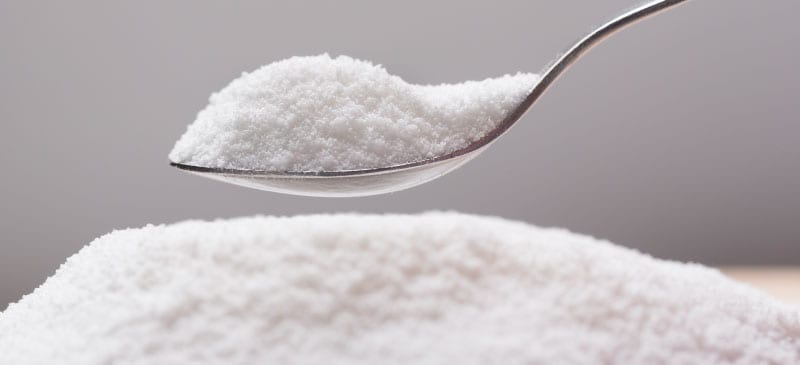This Dr. Axe content is medically reviewed or fact checked to ensure factually accurate information.
With strict editorial sourcing guidelines, we only link to academic research institutions, reputable media sites and, when research is available, medically peer-reviewed studies. Note that the numbers in parentheses (1, 2, etc.) are clickable links to these studies.
The information in our articles is NOT intended to replace a one-on-one relationship with a qualified health care professional and is not intended as medical advice.
This article is based on scientific evidence, written by experts and fact checked by our trained editorial staff. Note that the numbers in parentheses (1, 2, etc.) are clickable links to medically peer-reviewed studies.
Our team includes licensed nutritionists and dietitians, certified health education specialists, as well as certified strength and conditioning specialists, personal trainers and corrective exercise specialists. Our team aims to be not only thorough with its research, but also objective and unbiased.
The information in our articles is NOT intended to replace a one-on-one relationship with a qualified health care professional and is not intended as medical advice.
Study Finds Artificial Sweeteners May Increase Risk of Heart Disease
September 29, 2022

The dangers of artificial sweeteners are well-known, with research linking consumption to an increased risk of type 2 diabetes, obesity and cancer.
Additionally, a large-scale prospective study published in September 2022 found that artificial sweetener intake was associated with a greater chance of developing cardiovascular disease.
As if you needed another reason to stop using these chemical-laced sweeteners, all signs point to them being extremely dangerous to your health.
Study Findings: Artificial Sweeteners and Heart Disease
A recent study published in the BMJ that followed 103,388 French adults concluded that artificial sweeteners are not a safe alternative to sugar and are linked to an increased risk of cardiovascular disease.
To assess this connection between heart disease and artificial sweeteners, participants were given questionnaires regarding their health, height and weight, lifestyle, smoking status, professional occupation, number of children, and physical activity.
Three non-consecutive days of 24-hour dietary records were taken for all participants during the first two weeks of the study, which was used as the baseline assessment. Then records were taken every six months thereafter.
Study participants indicated all foods and beverages consumed throughout the day, and after two years, data was compiled to determine dietary patterns.
Throughout the follow-up period, participants submitted biannual health questionnaires and were able to report any new health events, treatments and examinations. For each cardiovascular event declared, participants were contacted by a study physician and asked to provide any relevant medical records.
The mean follow-up duration was nine years, and in that time, 1,502 cardiovascular incidents occurred. Data showed that total artificial sweetener intake was associated with increased risk of heart disease.
Adults with the highest intake of artificial sweeteners, consuming about 78 milligrams per day, had a 9 percent increased risk of cardiovascular disease compared to those who didn’t consume these sweeteners at all.
Of all study participants, 37 percent consumed at least one type of artificial sweetener regularly. Aspartame was the highest consumed artificial sweetener among participants, contributing to 58% of artificial sweetener intake, followed by acesulfame potassium and sucralose.
More than half of the adults in the study consumed artificial sweeteners in soft drinks with “no added sugar” and about 30% used table top artificial sweeteners.
Researchers concluded that these food additives “should not be considered a healthy and safe alternative to sugar.”
Other Dangers of Artificial Sweeteners
Artificial sweeteners have been marketed as a “sugar-free” option that can help you to lose weight and more, but the research is clear: There’s nothing healthy about these food additives. In fact, they are downright dangerous for your health.
They have recently been linked to cancer and are known for contributing to the following health issues and conditions:
- headaches
- migraines
- moodiness
- dizziness
- nausea
- impaired liver and kidney function
- impaired eye sight
- digestive complaints
- weight gain
- obesity
- type 2 diabetes
- inflammatory conditions
Healthier Swaps
It’s time to remove all products containing artificial sweeteners from your diet, which may feel daunting if you’re used to consuming these food additives, but there are much, much healthier options out there.
Some healthy sugar substitutes include:
- Stevia
- Raw honey
- Maple syrup
- Monk fruit
- Dates
Conclusion
- A recent study published in the BMJ concluded that artificial sweeteners are not a safe alternative to sugar and are linked to an increased risk of cardiovascular disease among adults.
- Those who consumed about 78 milligrams artificial sweeteners per day, which is considered a higher amount, had a 9 percent increased risk of cardiovascular disease compared to those who didn’t consume these sweeteners at all.
- Instead of choosing products made with artificial sweeteners, opt for those with natural sweeteners, such as stevia, raw honey, maple syrup and dates.









